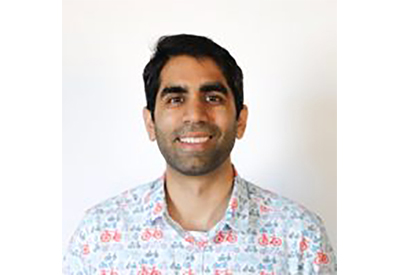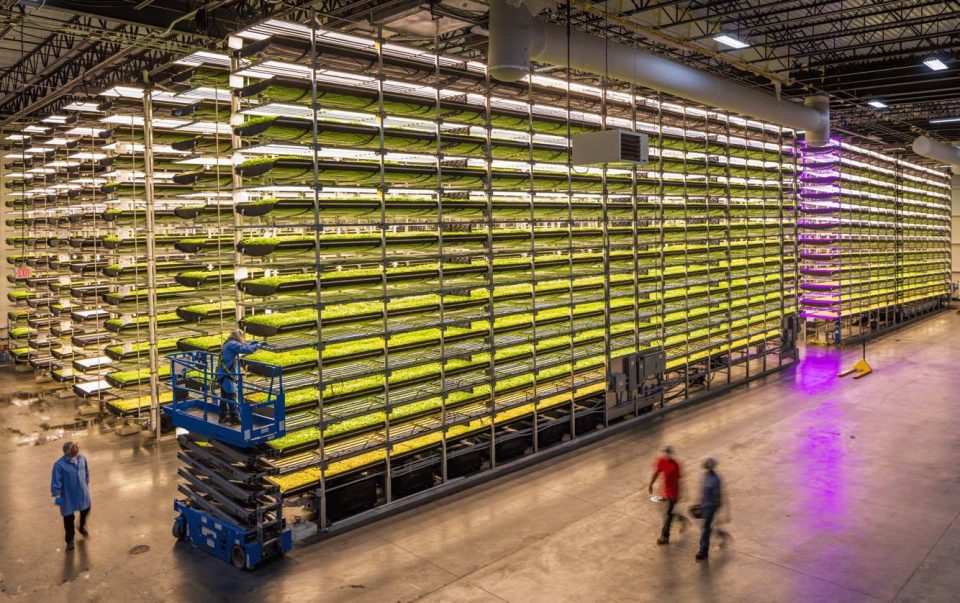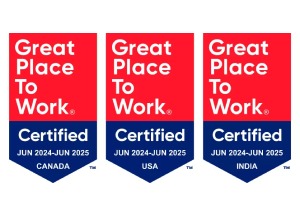From ABB to AeroFarms – Shakeel Rajwani Discusses his Career as a Controls Engineer

Jan 8, 2020
By Blake Marchand
Shakeel Rajwani is a Senior Controls Engineer with AeroFarms, a vertical farming company operating out of Newark, New Jersey. Shakeel earned a degree in Chemical Engineering from the University of Alberta in one of Canada’s most robust process control programs, allowing him to take additional courses in Electrical and Computer Engineering. Ultimately complementing his ambition to work with cutting edge technology, Shakeel would take full advantage of the school’s co-op program. Something he would leverage into a full-time job with ABB.
“While in school I did research co-op terms doing academic research on topics ranging from heavy oil upgrading, polymers from renewable resources, and mathematical modelling of fuel cell systems, and industry co-op terms at an OSB manufacturing plant and at ABB.”
After his research co-op, Shakeel realized he preferred a more hands-on career path. “While I enjoyed doing research, I decided industry was the path I wanted to follow as I find an enormous amount of satisfaction and gratification in doing tangible work,” he said.
He joined ABB following his graduation, where he worked for five years as a Control Systems Engineer.
“I had the opportunity to work on several large and impactful projects all over the world,” he said of his time with ABB, “Some of the highlights of my career at ABB include helping design and commission one of the worlds largest semiconductor manufacturing facilities and being a lead engineer on a major oil sands project for Devon Energy.”
Shakeel would be accepted into a graduate program at MIT, which he decided to delay. “While I had initially intended to take a break between work and graduate school, after I left ABB I was approached by a number of former colleagues about doing small projects. These small projects grew in number and in scope, and I found myself deferring school for a year to continue to work as a consultant.”
Following his graduate studies at MIT he landed a position with Devon Energy. “I found my MIT graduate education to be incredibly valuable and thought I could apply what I learned about systems optimization to the oil and gas industry,” he explained, “Devon didn’t have an advanced process control group at the time, so I was shuffled around a bit there until I landed in Devon’s digital technology development group. This provided me with a unique opportunity to do not only advanced process control projects, but also look at things like data analytics, artificial intelligence, and IoT technology.”
“I really enjoyed working for Devon, as where many oil companies are trapped in a bit of a legacy mindset, Devon was very interested in new technology development.”
Shakeel was with Devon Energy for 6-years. Earlier this year, Devon divested from the Alberta oil sands to pursue other opportunities in other markets. Similarly, Shakeel pivoted his career focus, taking his current job with AeroFarms. Much like his time with Devon (see question two) Shakeel has fully embraced the opportunity of being at the forefront of industry. As he mentions below, AeroFarms is taking on new challenges everyday as part of a still emerging industry.
As a leader in vertical farming AeroFarms is transforming the agricultural industry both technologically and in a way that is environmentally responsible. For example, they are able to locate farms closer to distribution routes and population centres and achieve higher yields while using 95% less water and considerably less land.
In the below interview, Shakeel discusses his current role, past projects, and some interesting technologies.
What is your day-to-day like as a Senior Controls Engineer with AeroFarms?
Vertical farming is also known as controlled environment agriculture, and there is a lot of emphasis on the control part. We control everything in our grow environment, from lighting to nutrition, to produce the best plants possible, and we do it using 95% less water and 390x less land than conventional agriculture. We collect millions of data points from every harvest and are using that data to get even better. As you can imagine, this creates a lot of work for our controls engineers. I couldn’t really tell you what I do day to day, as every day brings new challenges and new opportunities. The industry itself is so new that we are often solving problems that have never been looked at before.
Are there any projects you have worked on that have been particularly fascinating for you?
One of the most exciting projects I worked on before joining AeroFarms was an artificial intelligence driven well pair control solution at Devon Energy which I had kicked off in 2014, and I believe it was one of the first attempts to implement AI in the oil sands industry. As you can imagine, trying to be the first do so something can be really challenging, and the project took a long time to justify and get rolling. Our proof of concept was successful and was part of the reason Devon Canada’s digital technology group was created. The project was also a success for the other opportunities it unlocked for Devon Energy.
With respect to industry trends or technologies, what is interesting to you right now/what’s pertinent to what AeroFarms does? With respect to controls/automation etc.
The industry trends everyone seems to want to talk about are Artificial Intelligence (AI) and Internet of Things (IoT). These technologies have a great deal of relevance beyond control and automation, but I’ll only speak to how I’m seeing them impact the role of a controls engineer.
First, when people are discussing AI today, they are usually referring to neural networks, and more specifically the deep neural network architectures that have appeared in the last few years enabled by improvements in computing power. What these deep neural networks allow you to do, among other things, is create empirical models of processes that would have previously been impossible to model, provided you have enough data (and as I mentioned before, AeroFarms collects an enormous amount of data). These AI driven models can be used in applications such as model predictive control and real time optimization.
When people talk about IoT, they are talking about the proliferation of smart sensors, which is nothing new to controls engineers. What has changed is the cost of sensors has come down significantly, and the range of applications has widened. AeroFarms is addressing issues like food production and delivery in vertical farming using IoT technologies.
Building off the previous question, is there anything you see as becoming more prominent 5-10 years down the road? Particularly with respect to controls/system integration/automation in agriculture.
I already talked about AI, but related to AI there is another area called Reinforcement Learning (RL) that is attracting a lot of attention in the research community. RL holds promise to give us what I’d call “total system automation and optimization”, and in theory you could design an algorithm to direct an entire system towards a goal (whereas today we focus on automation at the equipment or subsystem level).
 I also want to touch on virtualization and the cloud. I see a future where controllers are completely virtualized. You’ll have I/O gateways, but no physical controllers. This might seem like a stretch of an idea to controls engineers today, but if you look over at the networking industry, it’s called network function virtualization and it’s already happened. Likewise, I think “Automation Function Virtualization” is on the horizon. And if the reliability can be there, there is no reason a virtualized automation system can’t live in the cloud as well.
I also want to touch on virtualization and the cloud. I see a future where controllers are completely virtualized. You’ll have I/O gateways, but no physical controllers. This might seem like a stretch of an idea to controls engineers today, but if you look over at the networking industry, it’s called network function virtualization and it’s already happened. Likewise, I think “Automation Function Virtualization” is on the horizon. And if the reliability can be there, there is no reason a virtualized automation system can’t live in the cloud as well.
Can you tell me a bit about AeroFarms?
With vertical farming/controlled environment agriculture, we can make better plants. We can optimize for taste, yield, cost, or any other variable you can imagine. Aerofarms is particularly well situated in this new industry as we are the largest, and that scale gives us a number of advantages.
You can find out more by visiting our website, www.aerofarms.com.




